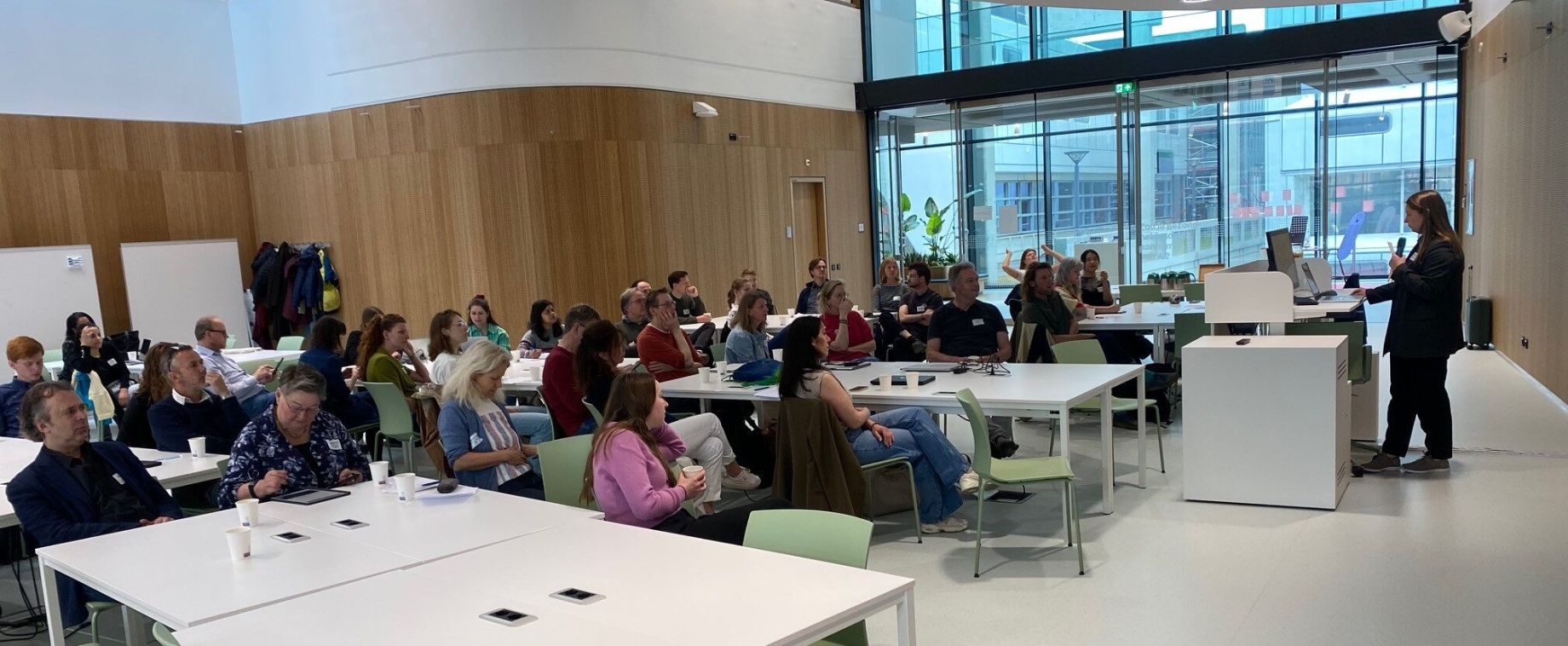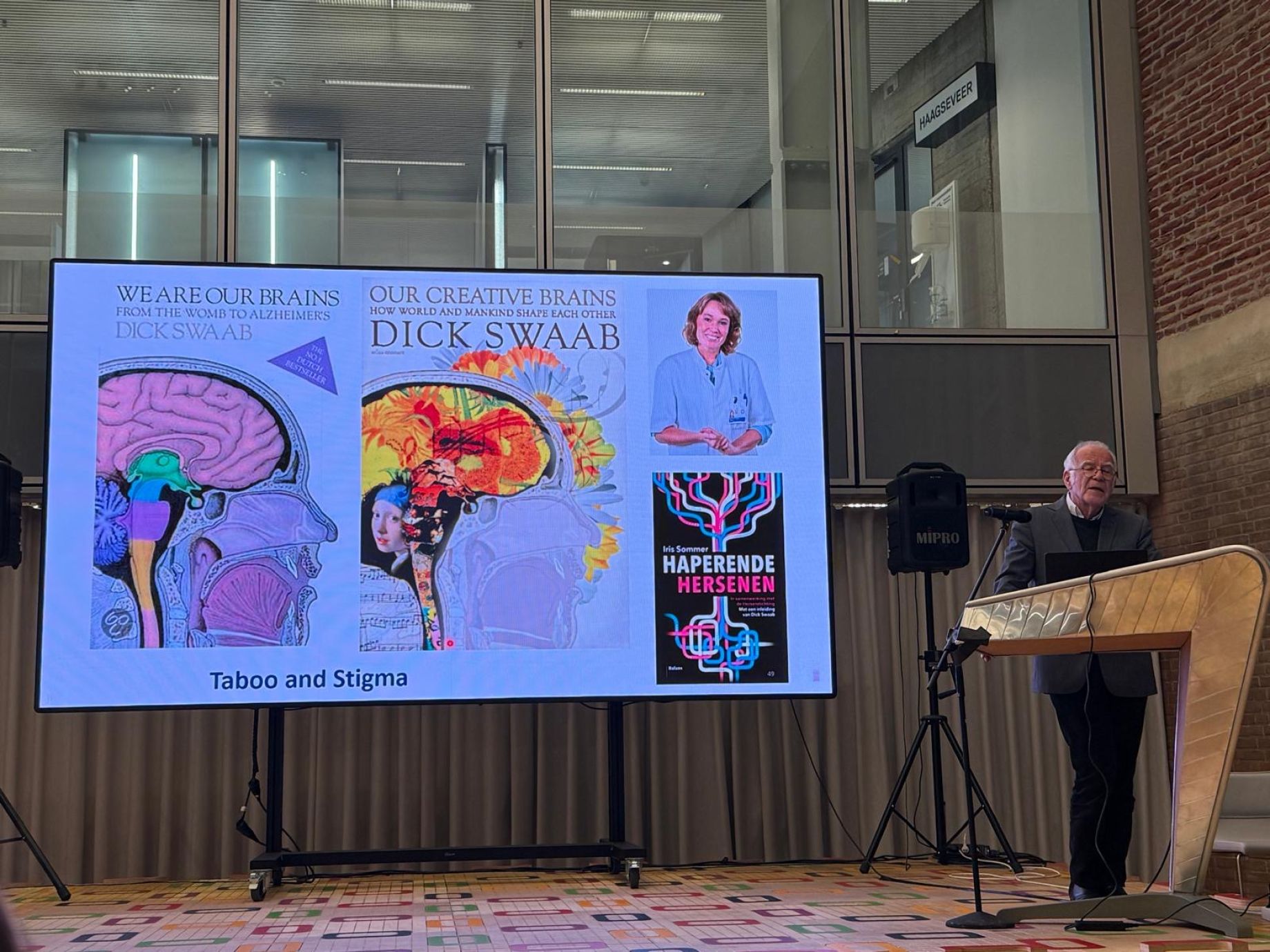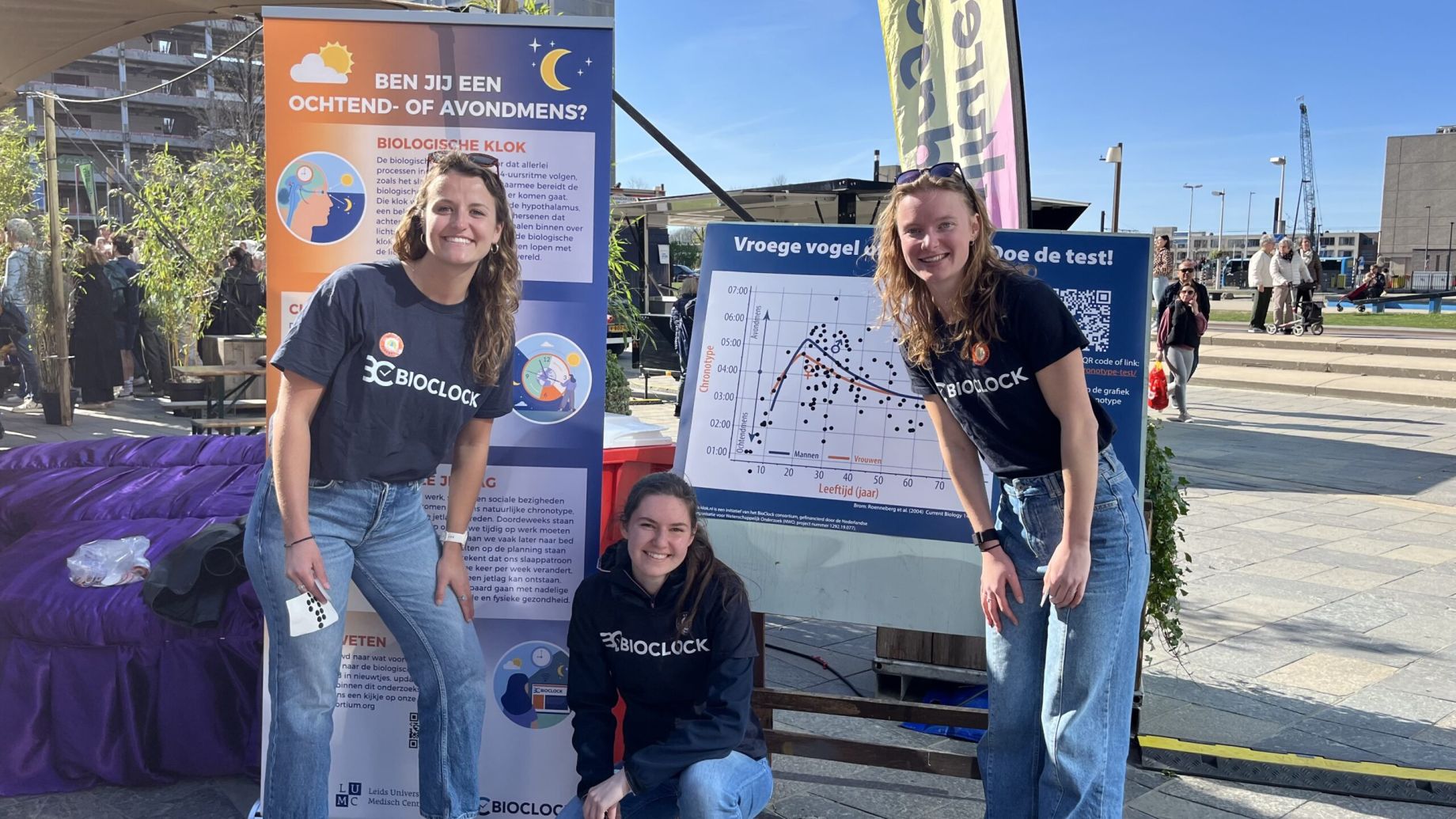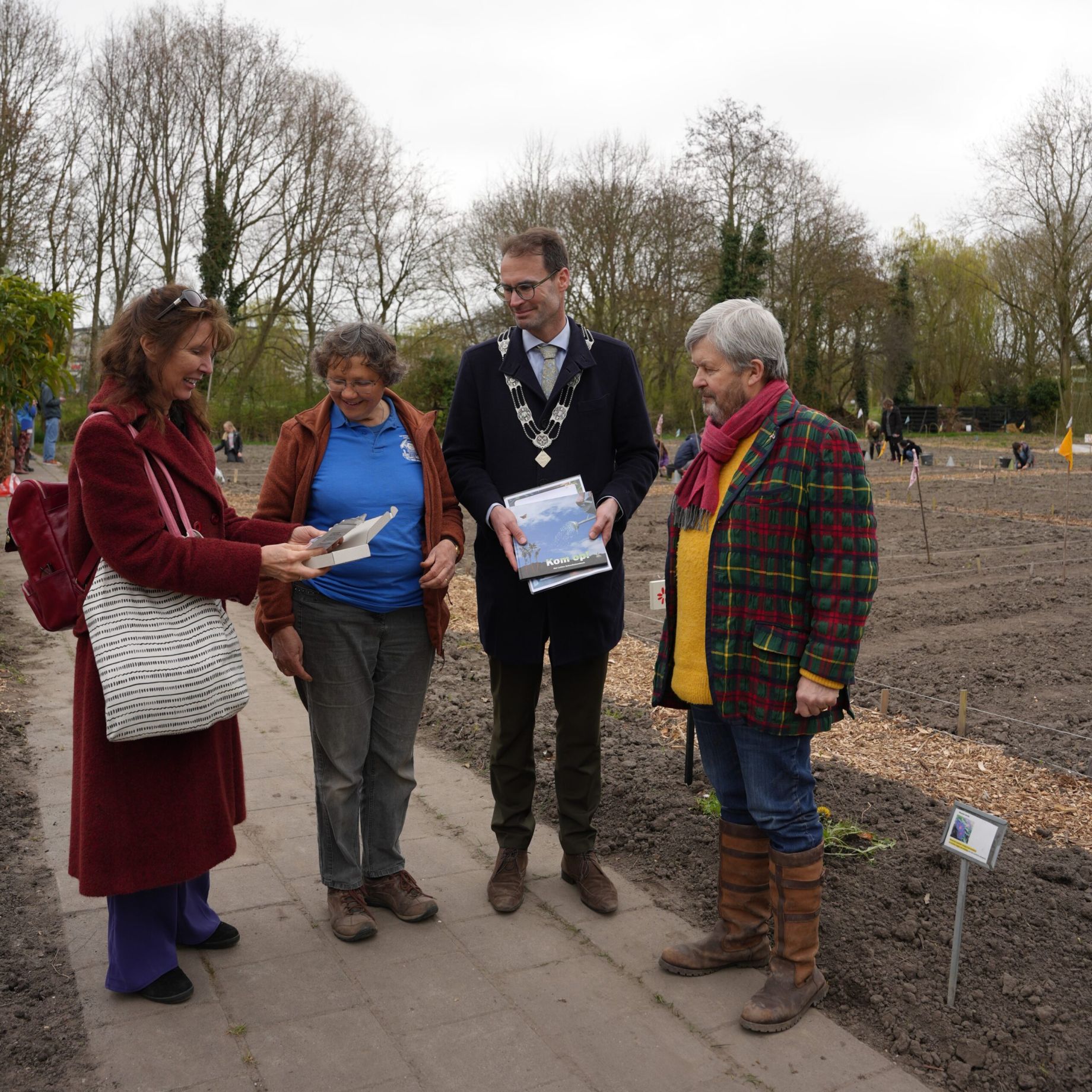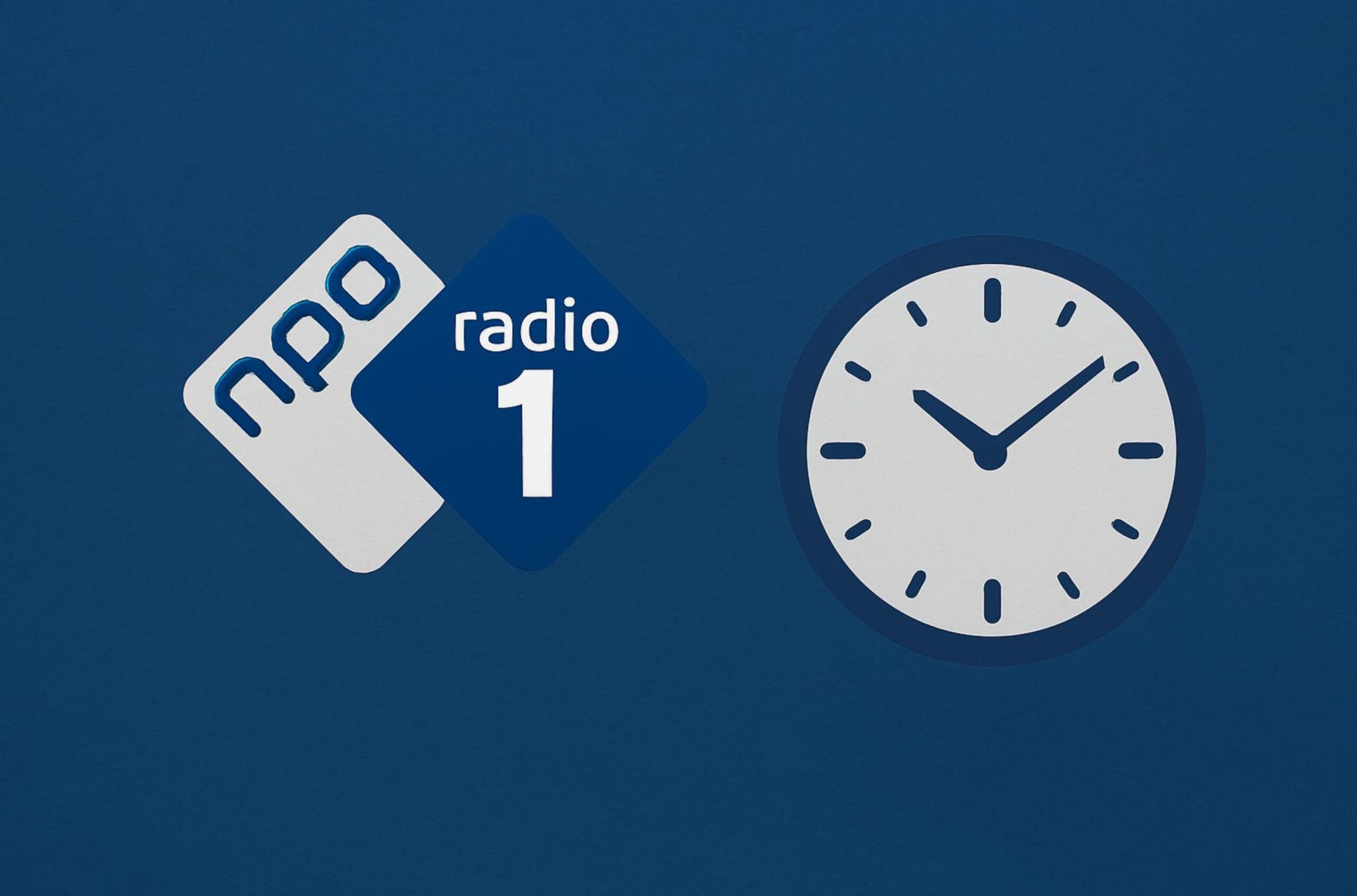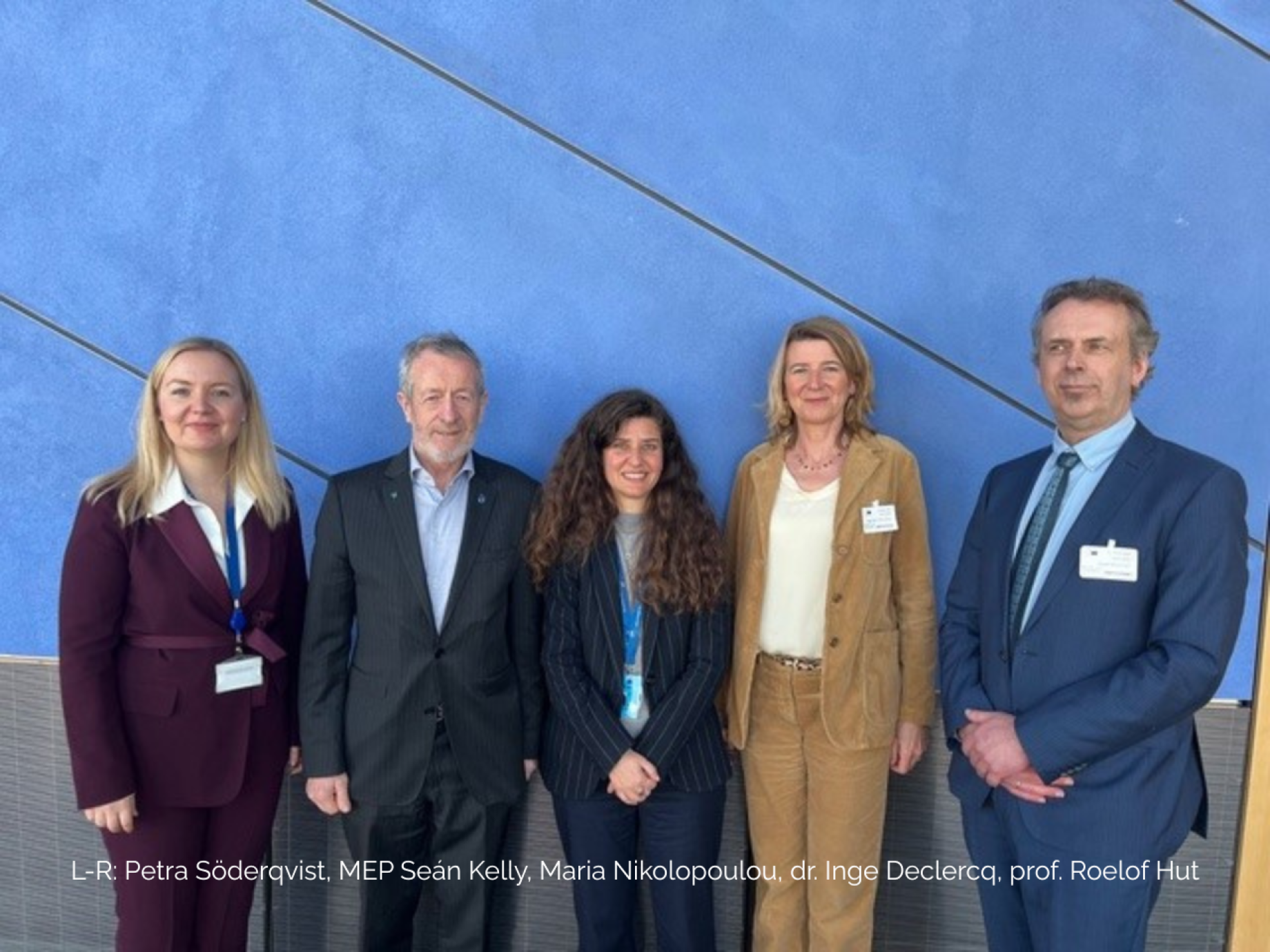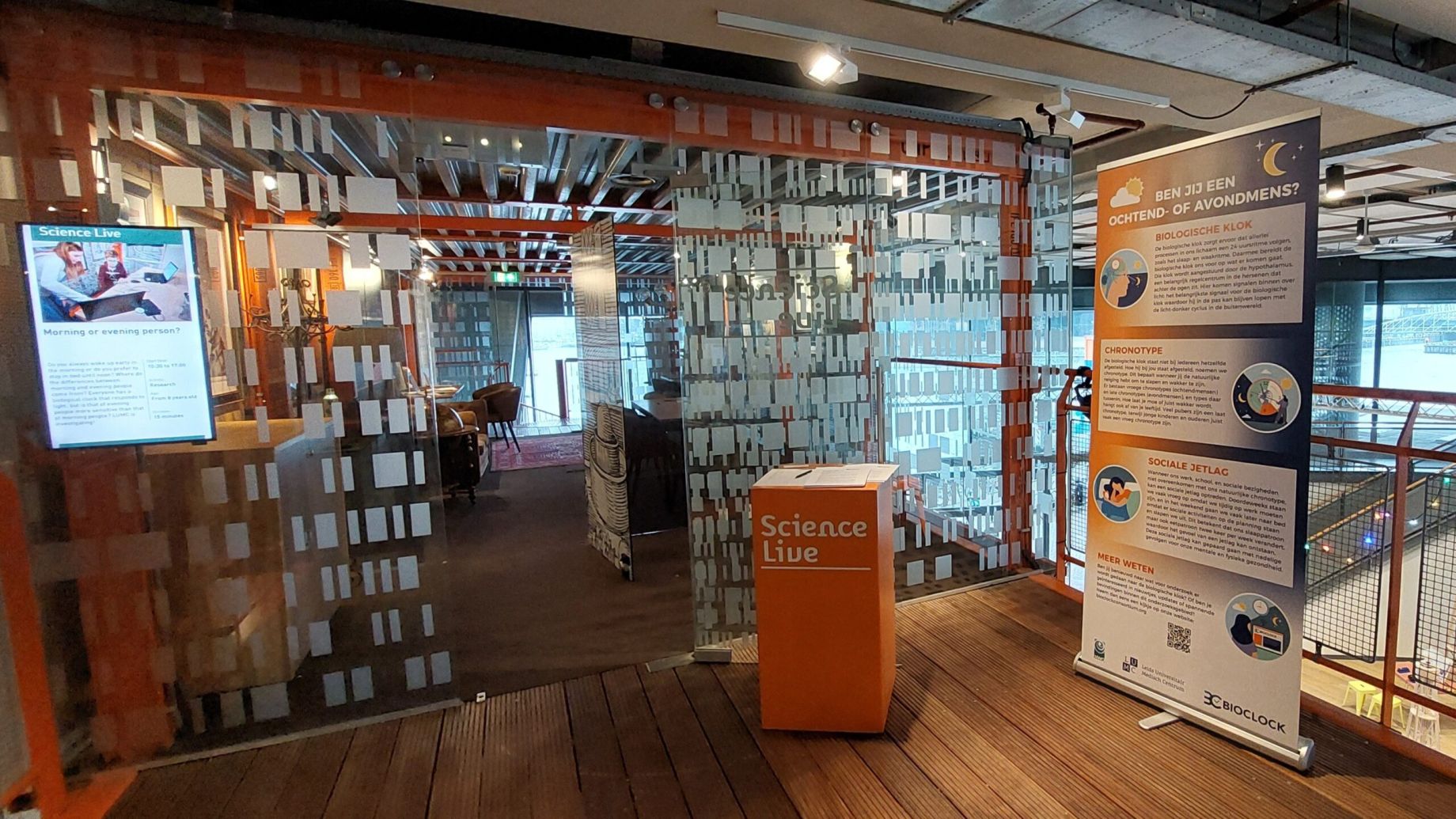Last Tuesday, April 15, a large group of BioClock consortium members gathered at Erasmus MC for the semi-annual BioClock Progress Meeting. It was an inspiring and enjoyable day, during which several trainees presented the progress of their research projects.
We were also honored by the presence of Dr. Mariana Astiz. She was one of the keynote speakers at the Dutch Chronobiology Meeting the day before. During lunch, BioClock trainees had the opportunity to speak with her about...
Antonia Kleinhoonte Lifetime Achievement Award presented to Prof. Dick Swaab at the Dutch Chronobiology Meeting
Written by bioclock on . Posted in News.
Each April, the BioClock Consortium organizes a national conference to bring together chronobiologists from across the Netherlands to share scientific findings and inspire one another. The third edition of the Dutch Chronobiology Meeting took place this past Monday in the auditorium of Rotterdam’s City Hall, hosted by the Municipality of Rotterdam—one of BioClock’s partners.
Almost every field within chronobiology was represented. A colorful mix of brain researchers, sleep...
🎉 BioClock kicks off Dutch Health Week at Culturele Zondag!
Written by bioclock on . Posted in News.
This past weekend, the BioClock consortium was present at Jaarbeursplein in Utrecht during Culturele Zondag — the festive launch of Dutch Health Week. On this sunny day filled with dance, music, and theatre, we added an educational and engaging twist to the program.
Visitors could discover their chronotype — in other words: are you a morning person or an evening person? With a short questionnaire and an interactive chart, participants could immediately see how their rhythm...
First Bioclock Garden in the Netherlands Officially Opened in Leiden
Written by bioclock on . Posted in News.
Prof. Joke Meijer at the opening of the first BioClock garden in the Netherlands, in Leiden.
On Friday, March 28, 2025, the very first Bioclock Garden in the Netherlands was officially opened in the school gardens of Leiden. The opening was led by Prof. Joke Meijer on behalf of the Bioclock Consortium and attended by the mayor of Leiden and the board of the School Garden Association.
The Bioclock Garden is a unique space where children are introduced to the concept of the...
Joke Meijer pleit voor het einde van ‘zomertijd’ op Radio 1
Written by bioclock on . Posted in News.
Afgelopen weekend vond de halfjaarlijkse klokwisseling plaats, waarbij we overschakelden naar de zomertijd. Naar aanleiding hiervan was prof. Joke Meijer, hoofd van het BioClock-consortium en hoogleraar hersenonderzoek aan de Universiteit Leiden, te gast bij het radioprogramma ‘NOS Met het Oog op Morgen’ op NPO Radio 1.
In het interview pleitte zij voor het afschaffen van de zomertijd en een permanente invoering van de wintertijd, die volgens haar beter...
BioClock Consortium presents position statement: End the clock changes
Written by bioclock on . Posted in News.
The BioClock Consortium has released an official position statement advocating for the abolition of the biannual clock changes and the adoption of a fixed, healthy time zone: natural time.
Our position: Choose natural time
On the night of Saturday, March 29 to Sunday, March 30, 2025, the clocks will move forward by one hour once again. This recurring change disrupts our biological clock and can negatively impact our health. The BioClock Consortium joins other scientific...
Successful research at NEMO: Sensitivity to Light in Morning and Evening People
Written by bioclock on . Posted in News.
Over the past two weeks, a part of the NEMO Science Museum in Amsterdam was transformed into a research center for the BioClock Consortium. The goal? To understand whether the biological clock of evening people is more sensitive to light than that of morning people.
What did we study?
More than 500 enthusiastic visitors completed a questionnaire to determine whether they are morning or evening types. Subsequently, we measured their pupil response to red and blue light...
